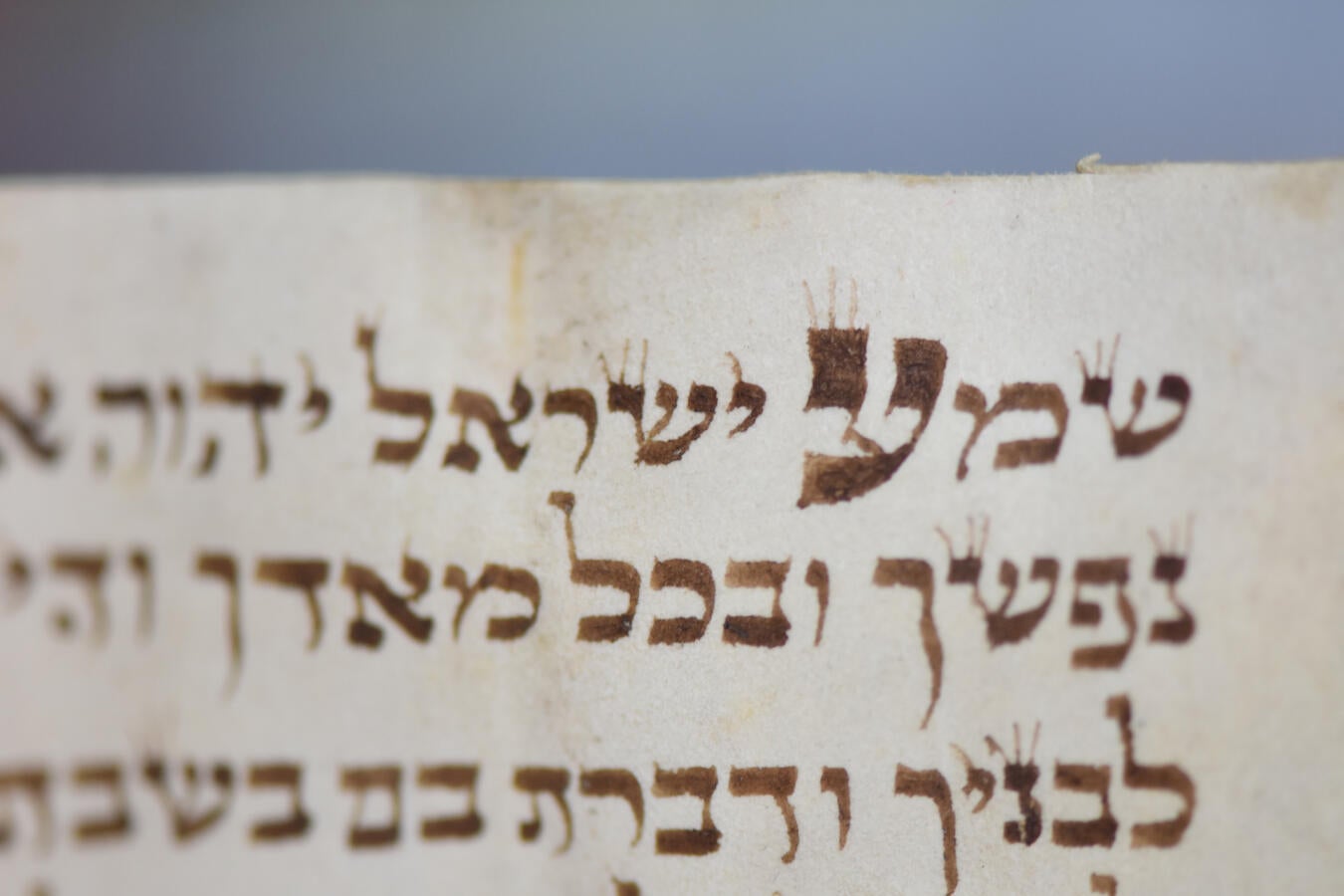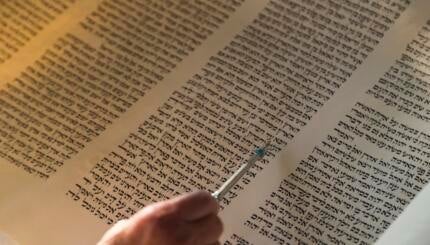Commentary on Parashat Vaetchanan, Deuteronomy 3:23-7:11
Parashat Vaetchanan contains six Hebrew words that constitute one of the most famous verses in Torah and Jewish tradition: Shema Yisrael, Adonai Eloheinu, Adonai echad. “Listen Israel, Adonai is our God, Adonai is one.”
The Shema is said twice in traditional daily liturgy, is among the first prayers taught to Jewish children and is the prayer that Jews traditionally aspire to make their last words spoken as death approaches. As a rabbi, I have been at the bedsides of declining elders who lay silently, not responding to anything I say. But when I sing the Shema, they brighten and sing along with me.
The odd thing about the Shema is that it’s a prayer that isn’t exactly a prayer. It’s not a request, nor is it laudatory. It is simply a call to the listeners to hear a declaration of belief.
A while back on social media there was a hashtag: #sixwordstories. The challenge was for people to use six words to evoke an entire scene or idea. The Shema is the ultimate Jewish version of this exercise, because its six Hebrew words each convey the essential Jewish worldview. Let’s look at the words one by one:
With your help, My Jewish Learning can provide endless opportunities for learning, connection and discovery.
First: Shema — Listen! Hearken! Understand!
Deep listening is the beginning of making peace and creating a better world. The late Len Traubman, who founded many dialogue groups between former enemies, taught that dialogue is more about listening than talking. It is an exercise in listening in order to learn, rather than listening while thinking what to say next. He stressed that dialogue “dignifies both people: the listener and the person who is being listened to.” Hearing others’ stories can be a first step in bridging gaps and increasing understanding.
Second: Yisrael — Israel.
The people of Israel, the Jewish people, are the children of Jacob, whose name was changed to Yisrael when he struggled with an angel and became, in a translation Rabbi Arthur Waskow favored, a “God Wrestler.” This single word emphasizes that the Jewish path is one of struggle with and for tradition, theology and doing the right thing.
Third: Adonai — usually translated as “Lord,” this is one of the ways Jewish liturgy refers to God.
The tetragrammaton, the original four-letter name of God from the Torah is yud-hey-vav-hey, a name rabbinic tradition says is too holy for us to pronounce. This divine name is associated with Moses’ encounter at the burning bush, where God tells Moses to call him, eheyeh asher eheyeh, “I will be what I will be.” In the teachings of the late Rabbi Lord Jonathan Sacks, it is thus a name of promise and divine presence, now and in the future.
Fourth: Eloheinu — our God.
In Biblical Hebrew, Elohim can mean both God and judge, so our sages saw this appellation as invoking the more judgmental aspect of God. For the mystics, however, Elohimreferred to the imminent God, that experience of divinity being close to us, filling our world and all of nature.
Puting them together, Adonai Eloheinu could mean that the transcendent divinity showing mercy to all is also our inmost guiding and discerning principle, the ever-present promise of a better future.
Fifth: Adonai. (Again.)
God’s proper name is paradoxical, because it signifies God’s transcendence along with God’s nearness. To draw on Rabbi Waskow again, the four letters of this holiest divine name are all sounds of breathing (the vav was originally pronounced like a “w”), assuring us that God is as close as our breath.
Sixth: Echad — One.
This is usually understood to simply mean that there is only one God. But linguists and philosophers debate whether this word is better translated as “one,” “alone,” “singular,” or “unique.” In the phrase Adonai echad, I hear a declaration that God is a Unity and since we all carry the image of God within, we are connected and part of that unity.
Putting the Jewish six-word story all together, Shema Yisrael, Adonai Eloheinu, Adonai echad calls on us to listen deeply, to wrestle with meaning, to bring the transcendent down to earth, to pair justice with mercy and to bear witness that all of us are ultimately connected through a divine unity. It is just six words, but it contains the multitudes that have sustained us over the millennia.



